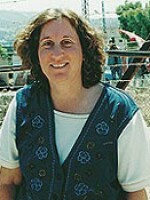STEVE INSKEEP, host:
This is MORNING EDITION from NPR News. I'm Steve Inskeep.
Israeli security officials say Syria test-fired three Scud missiles last week. One of them crossed the border, broke up over Turkey and rained missile parts on farmers. The Israeli officials said these were the first Syrian missile tests in four years, but they said the tests appeared to more of a warning than a threat. NPR's Linda Gradstein reports.
LINDA GRADSTEIN reporting:
Israeli security officials said the missile tests, first reported in the New York Times, were part of a Syrian missile development project using North Korean technology to deliver chemical weapons. They said two of the missiles were Scud D's with a range of about 435 miles and one, an older Scud B, with a shorter range. One of the missiles broke up and missile parts landed in two Turkish villages. Turkish Press reported there were no casualties and Syria had apologized. Gerald Steinberg, an expert in military affairs at Bar-Ilan University, said the missiles did not demonstrate any new capabilities.
Mr. GERALD STEINBERG (Bar-Ilan University): There have been relatively continuous testing of Syrian missiles, usually for political strategic purpose, sending warning shots saying, `We're still here, don't ignore us.'
GRADSTEIN: Steinberg said the fact that one of the missiles broke up over Turkey, which is a member of NATO, is a slap in the face to that organization and, by extension, to the US.
Mr. STEINBERG: This is not something specifically aimed at Israel, and it does not seem to be part of any kind of Israeli-Syrian tension, but much more American pressure in response to that.
GRADSTEIN: Israel has occupied the Golan Heights taken from Syria since 1967. And Israeli officials say they are concerned about the Syrian missile program. Linda Gradstein, NPR News, Jerusalem. Transcript provided by NPR, Copyright NPR.






